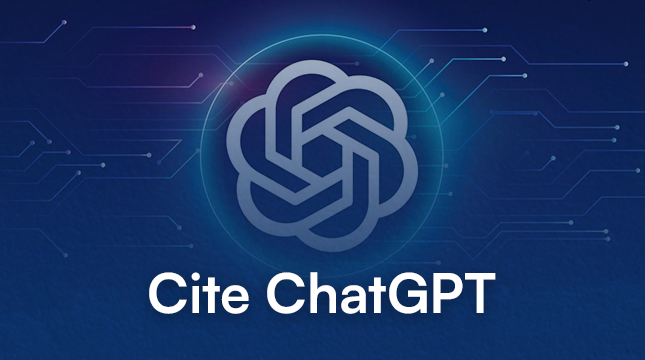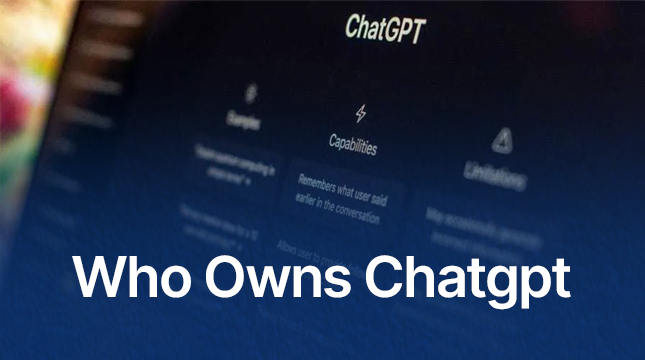This website uses cookies so that we can provide you with the best user experience possible. Cookie information is stored in your browser and performs functions such as recognising you when you return to our website and helping our team to understand which sections of the website you find most interesting and useful.
How to Cite ChatGPT: A Complete Guide

ChatGPT, the wonder kid of AI language models, has become a go-to tool for brainstorming, content generation, and research assistance. But, when citing its contributions in your writing, things get a bit murky. Fear not, fellow wordsmiths! This blog will guide you through the art of citing ChatGPT in MLA and APA styles.
Understanding the Why
Before understanding formats, let’s address the “why” of citing ChatGPT.
- Transparency: Attributing information you glean from ChatGPT showcases your research process and avoids plagiarism.
- Acknowledging the Tool: ChatGPT is a powerful tool, and citing it demonstrates your awareness of the resources used.
General Guidelines for Citing ChatGPT
Key Elements to Include
- Author: OpenAI.
- Date: The date you accessed or used the information.
- Title: Indicate the specific nature of the interaction, e.g., “ChatGPT response” or “ChatGPT-generated text.”
- Source: Mention ChatGPT explicitly and include a link to the OpenAI website.
- URL: Direct link to OpenAI’s ChatGPT page or a general link to OpenAI.
Citation Formats
Cite ChatGPT APA Format
In APA style, a typical citation would look like this:
In-text citation:
(OpenAI, 2024)
Reference list:
OpenAI. (2024, June 11). ChatGPT response. Retrieved from https://www.openai.com/chatgpt
Cite ChatGPT in MLA Format
For MLA style, the citation would be:
In-text citation:
(OpenAI)
Works Cited:
OpenAI. “ChatGPT response.” 11 June 2024, https://www.openai.com/chatgpt.
Cite ChatGPT Chicago Format
In Chicago style, you might format it as:
Footnote:
OpenAI, “ChatGPT response,” June 11, 2024, https://www.openai.com/chatgpt.
Bibliography:
OpenAI. “ChatGPT response.” June 11, 2024. https://www.openai.com/chatgpt.
Examples of Usage
Academic Papers
When incorporating text or ideas generated by ChatGPT into an academic paper, it’s crucial to follow your institution’s guidelines for citing digital sources. Generally, this involves the citation styles mentioned above, tailored to specific requirements.
Professional Reports
In professional settings, transparency about the use of AI tools can enhance credibility. Cite ChatGPT in the same way you would any other digital resource, ensuring that colleagues and stakeholders understand the origin of the information.
Blogs and Personal Projects
For blogs, personal projects, or other informal contexts, citing consistently is the key. Indicating when and how ChatGPT was used ensures your audience is aware of the source.
Ethical Considerations
While citing ChatGPT, it’s essential to recognize the limitations and ethical implications. ChatGPT generates responses based on a vast dataset but does not possess personal opinions or firsthand knowledge. Always cross-verify information from ChatGPT with reliable sources, and consider the potential biases in AI-generated content.
Conclusion
Citing ChatGPT appropriately is part of responsible digital citizenship. Whether you’re an academic, professional, or hobbyist, following these guidelines will help you maintain the integrity and credibility of your work. As AI continues to evolve, so too will the standards for citing these valuable tools.
By adhering to these citation practices, you contribute to a transparent and ethical digital information ecosystem.
Keep following Netizens for more tips like these!

Let's Start Your Project
Get free consultation for your digital product idea to turn it into reality!
Get Started





